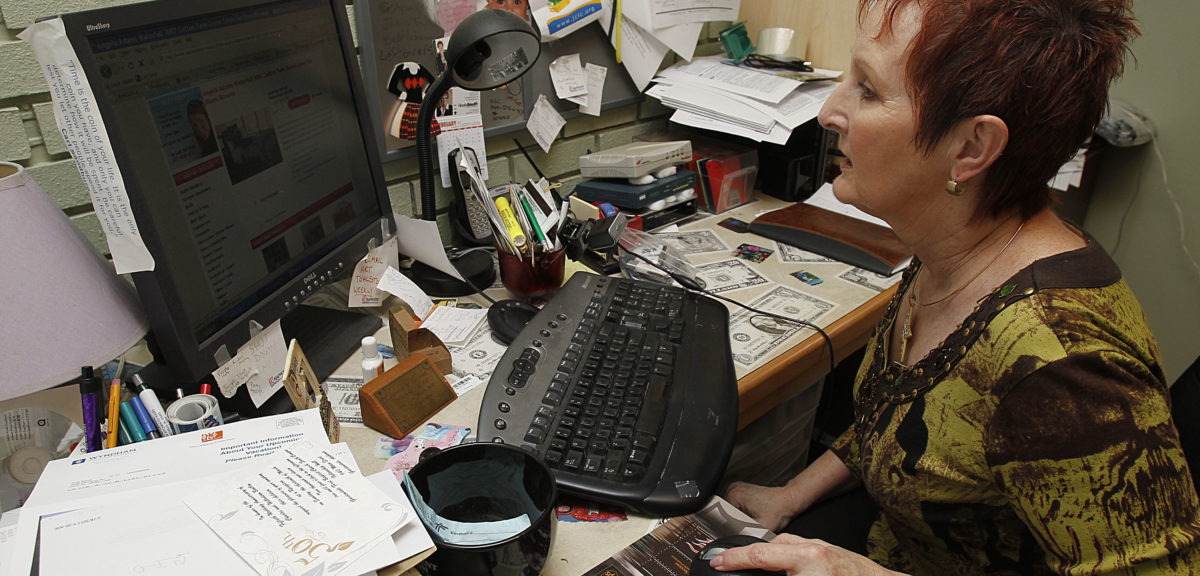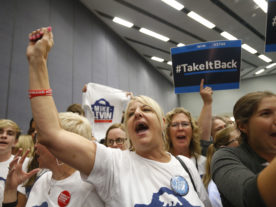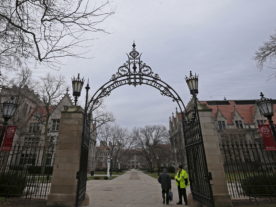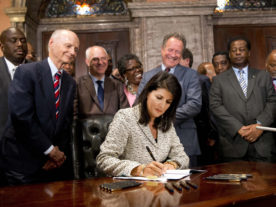Americans work a lot.
Nowhere near as hard or long as perhaps people in poor and developing countries, but more than workers in the world’s 30 wealthiest countries.
In France or Denmark, employees with at least 10 years on the job can look forward to 25 days of vacation each year, while German employers are legally required to provide 20 days off. But American workers receive an average of 17 vacation days annually.
That’s not bad considering that American employers are not required to give workers any paid time off. At all.
Still, 77 percent of U.S. workers do get vacation time. People who don’t get any paid time off include part-timers, lower-income workers and employees of small businesses.

FILE — A worker on the job at the Ford Michigan Assembly plant in Wayne, Michigan. (AP)
Not only do American workers get less vacation time overall than their peers in other countries, but more than half of Americans don’t use up all of their vacation time.
Labor expert Teresa Ghilarducci says it all comes down to a fear of losing their jobs.
“Americans can get fired more easily than people in other countries because they don’t have the worker protections,” she says. “And so, in order to avoid being fired, and this will be worse during a recession, employees are overworking themselves, exploiting themselves.”
The reason American workers feel vulnerable is because unions in the United States aren’t as strong as worker advocate organizations in other developed nations. Ghilarducci, an economics professor who focuses on jobs and retirement, adds that it’s far more arduous to get a union recognized in the United States than in other countries.
“Canada has a lot more paid time off and a lot more unions and that’s because workers can sign what’s called a card that a majority of workers can say they want a union,” she says. “But in the United States, you have to set up a complicated election procedure, so instead of just declaring on a card that you want a union, the National Labor Relations Board has to come in with secret ballots and secret polling places, which is a lot more costly.”
The result is that Americans averaged more work hours in 2017 than workers in Germany, France, Great Britain, Canada, Japan and Italy.
“American employers aren’t playing a long game here,” Ghilarducci says. “It’s kind of a low road versus a high road decision and American employers have basically taken the low road. Their relationship with their employees is burn them out and then get a new crop.”
And while paid leave is now an industry norm in the U.S., that could change at any time, and would be more likely to during the next economic downturn.
“If a couple of large firms, like in the next recession, said ‘Hey, we have to cut down on costs. We’re going to cut down on paid leave,’ and if everybody did it together, that number [of paid leave hours] will go way down,” Ghilarducci says.
However, she anticipates employers will cut pensions and health care before paid leave.
“As it turns out, paid leave isn’t that costly for employers because people do a lot of work before they go on leave or on vacation, or their coworkers do their work for them,” she says. “And then you work like hell when you get back to make up, so they don’t really lose that much productivity.”

























This reads like propaganda from the old Soviet Union, where I was born. I expect better from VOA
Has the writer made a mistake? Does the scope of foreign peers in this article include Chinese workers? Yes, the Chinese government stipulates that people in factories work only 40 hours per a week. But workers in factories work more than 72 hours per a week, even more. If some one’s working time was shortened, he may protest. Why? Because the Chinese salary is very low, 8 hours salary can not guarantee the normal family life, so people have to longer their working time to earn more money. Overtime is their another income source. So please add words of ‘except Chinese people’ in the article title.
Remember working sixteen hour days when I was younger with good benefits, it comes iso2000 and we loose benefits and they cut the labor force in half,so now one person is doing the job of two.this happened in the nineties.
Some people work more in 20 hours than others in 60.
This is not taken into account.